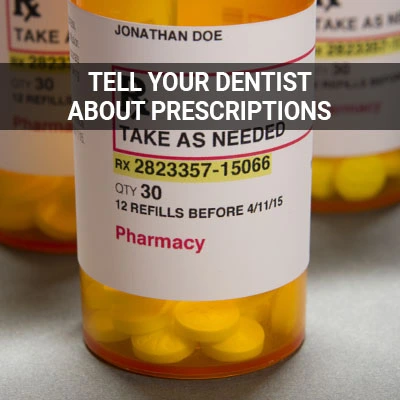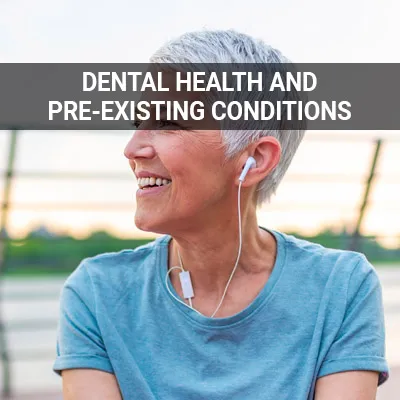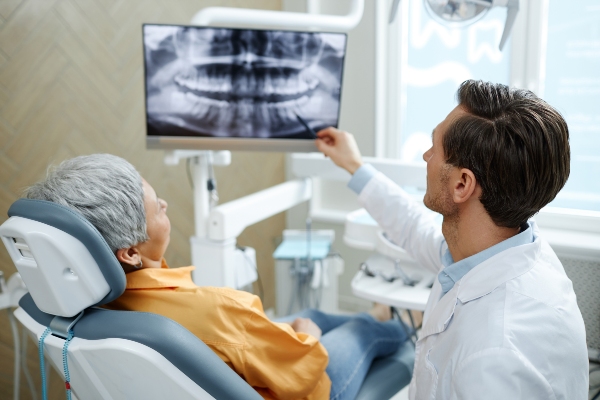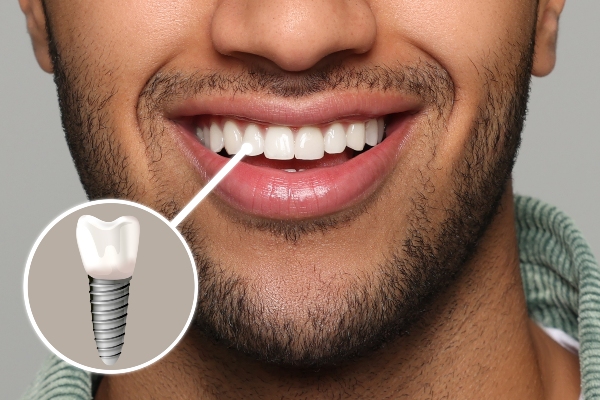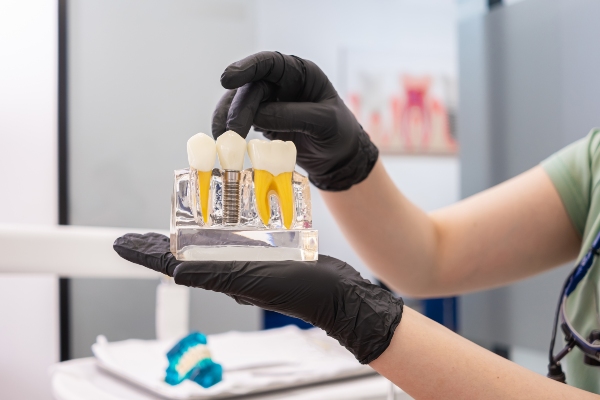Medications That Affect Oral Health Austin, TX
For decades, dental and medical professionals have understood the connection between oral and general health and implemented it through complete health dentistry. Through extensive research, clinical trials, and experience, they found that many medications for various health conditions affect one's oral health. It is for that reason that dentists need to know a patient's medical history as well as a list of all medications they are taking.
Understanding the oral-systemic link and medications that affect both medical and dental conditions can significantly enhance a patient's well-being. We can also alter certain medications to fit the patient's needs and help curb their symptoms or side effects. Complete health dentists can offer guidance in navigating conditions and prescribe appropriate dental medications.
Complete health dentistry information is available at Austin Lifetime Dental in Austin and the surrounding area. Our staff can help you better understand the oral-systemic health connection. Call us at (512) 387-9049 to schedule a consultation appointment today.
Cancer Medications
Certain medications used as a part of cancer treatment could affect a patient's oral health. Many cancer medications, including chemotherapy, are notorious for causing symptoms such as dry mouth (xerostomia), mucositis (sores), and taste changes. A dry mouth, in particular, is an environment that is more vulnerable to the overgrowth of bacteria, which cause tooth decay, infections, or gum disease.
This is why a dentist needs to know if a patient is receiving cancer medicine. Patients who are experiencing oral side effects from cancer medications should inform their doctor and dentist. We may be able to help by prescribing a saliva substitute.
“Dry mouth, in particular, is an environment that is more vulnerable to the overgrowth of bacteria, which cause tooth decay, infections, or gum disease.”
Behavior or Mood-Altering Drugs
Patients who are taking behavior or mood-altering medication may notice an impact on their oral health in more than one way. For instance, many medications that enhance mood can cause dry mouth (xerostomia) due to decreased saliva production. When we are producing a smaller amount of saliva, we become more vulnerable to developing conditions such as tooth decay or gum inflammation.
Some mood-altering medications can also cause side effects such as bruxism (tooth-grinding), which can negatively affect oral health. Additionally, many mood-altering drugs can cause fatigue or forgetfulness, which can create lapses in a person's dental care routine, particularly around bedtime hours. Patients who struggle with their oral health while taking medication for a mood-related condition should ask about how to manage side effects.
“When we are producing a smaller amount of saliva, we become more vulnerable to developing conditions such as tooth decay or gum inflammation.”
Medication for Diabetes
Diabetes medications can alter a patient's sense of taste, known as dysgeusia. According to WebMD, dysgeusia can make food taste different or cause a metallic, salty, or bitter taste in your mouth. Taste changes can lead to insufficient nutrition due to a lack of taste and appetite, which may increase oral conditions.
Periodontal disease is the most common dental disease affecting those living with diabetes, affecting nearly 22% of those diagnosed. With age, diabetic patients experience poor blood sugar control, increasing their risk of gum disease that can also affect their ability to control blood sugar levels. Gum problems make diabetes harder to control because the patient is more susceptible to infection but less able to fight it. Treating the gums, applying a meticulous oral regimen, and having regular professional deep-cleanings can help curb and even prevent oral conditions and stabilize blood sugar levels.
“Gum problems make diabetes harder to control because the patient is more susceptible to infection but less able to fight it.”
Check out what others are saying about our dental services on Yelp: Medications That Affect Oral Health in Austin, TX
Regulation Medication
Cardiovascular
Certain regulatory medicines, including cardiovascular medications, cause gum enlargement, also known as gingival overgrowth. The enlargement is caused by inflammation of the gums from plaque build-up. According to Pharmacy Times, about a million North Americans are affected by drug-induced gingival overgrowth. Complete health dentists can help cardiovascular patients regulate their medications while also limiting their gum overgrowth to prevent further oral complications.
Thyroid
Patients with a thyroid imbalance often experience dry mouth syndrome, burning mouth syndrome, increased cavity development, enlarged tongue and gums, slow-healing mouth sores, delayed or rapid tooth growth, and osteoporosis. Thyroid medications alter the taste senses as well, which could limit a patient's nutritional intake. Drugs that balance hormone levels may increase incidences of mouth sores, tooth decay, and difficulty swallowing.
“Certain regulatory medicines, including cardiovascular medications, cause gum enlargement, also known as gingival overgrowth.”
Questions Answered on This Page
Q. How is diabetes affected by oral hygiene?
Q. How do regulatory medications affect oral health?
Q. How can I maintain good oral health while taking medication?
Q. How do cancer medications affect oral health?
Q. How can behavior or mood-altering drugs affect oral health?
People Also Ask
Q. How does oral health affect the gut and immune system?
Q. How do preexisting conditions affect dental care?
Q. What should a home oral care routine include?
Q. Why is it important to find the right general dentist?
Keeping Mouth Healthy While on Medication
It is important to know and understand the side effects resulting from a particular medication and how to reduce or eliminate them in an effort to maintain good oral health. Taking appropriate hygienic measures also decreases many general health symptoms as much of the bacteria in the mouth is cleared before entering the body.
Depending on the health condition, complete health dentists can offer insights on how to relieve dry mouth, enlarged gums, abnormal bleeding, taste changes, tissue reactions, bone loss, discoloration, and thrush infection. In most cases, patients cannot decide against taking medications, but dentists may lower their dosage or alter the medication to suit their oral needs. Patients should seek medical and dental advice regarding medications while also maintaining a proper oral hygiene regimen.
“In most cases, patients cannot decide against taking medications, but dentists may lower their dosage or alter the medication to suit their oral needs.”
Frequently Asked Questions About Medications Linked to Dental Health
Q. What can I do to improve my oral health while taking psychotropic medications?
A. Once you are aware of the connection between your medications and your oral health, you can make changes to your routine that can positively impact your dental condition. According to the Oral Health Foundation, changes as simple as reducing your sugar intake, and brushing with fluoride toothpaste, can help mitigate the impact of your medications.
Q. What kinds of heart medications can cause changes in my gum tissue?
A. The most common cardiovascular medication that contributes to gum changes is known as a calcium channel blocker. Examples of calcium channel blockers include verapamil, amlodipine, and nifedipine. If you are noticing changes in your gums from a medication, your dentist may be able to discuss an alternative medication with your physician.
Q. What types of medications affect oral health?
A. Many different types of medications affect the oral cavity. It also largely depends on the form and dosage. Among them are antihistamines, decongestants, painkillers, high blood pressure medications, muscle relaxants, drugs for urinary incontinence, Parkinson's disease medications, and antidepressants.
Q. What can my dentist do if I am taking a medicine that affects my oral health?
A. Your total health dentist considers your oral-systemic connection when conducting assessments of your oral health. If you are taking a medicine that impacts your oral health, your dentist may be the first clinician to identify this. If we do so, we will work with your prescribing physician to make changes or adjustments as needed. We can also consider medications, such as saliva substitutes to help with symptoms.
Q. Does the dentist work with primary care doctors to alter medications?
A. Patients who require treatment may need to alter their medications in order to undergo the procedure. We can communicate with your doctor to suggest certain medications that are safer or measures to take until you recover from the procedure. We can also work with you on questions to ask your doctor about oral medications.
Dental Terminology
Learn More Today
If you are interested in better understanding complete health dentistry and effects of medication, call us at 512-387-9049 to set up an appointment.
Helpful Related Links
- American Dental Association (ADA). Glossary of Dental Clinical Terms. 2025
About our business and website security
- Austin Lifetime Dental was established in 2022.
- We accept the following payment methods: American Express, Cash, Check, Discover, MasterCard, and Visa
- We serve patients from the following counties: Travis County
- We serve patients from the following cities: Austin, West Lake Hills, Barton Creek, Rollingwood, Lost Creek, Tarrytown, Hyde Park, Oak Hill, Austin Lake Hills and Bee Cave
- Norton Safe Web. View Details
- Trend Micro Site Safety Center. View Details
Back to top of Medications That Affect Oral Health



